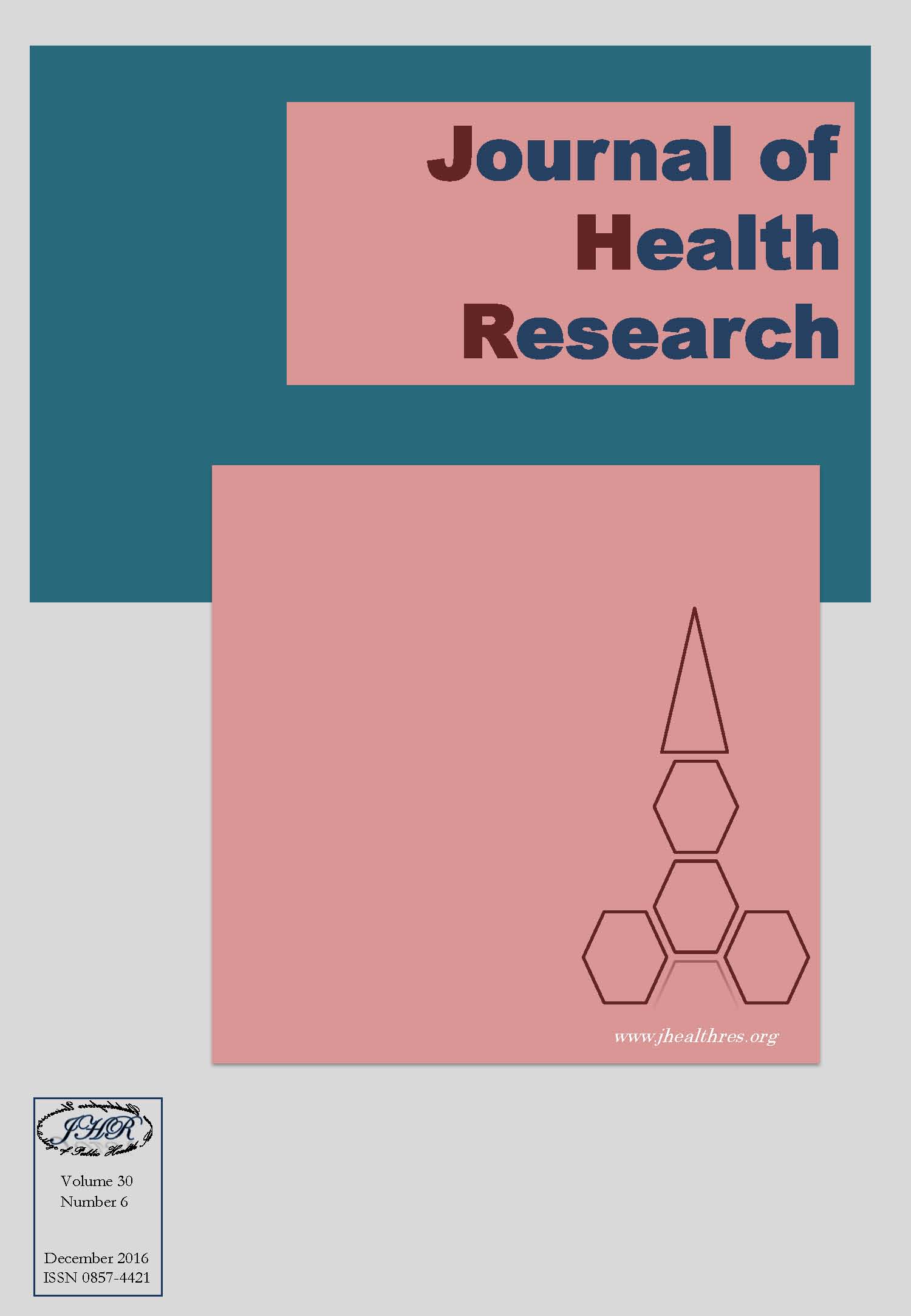Effects of a blended learning model integrating situated multimedia lessons and cognitive apprenticeship method on the clinical reasoning skills of nursing students
Keywords:
Clinical reasoning, Nursing students, Instructional model, Blended learning, Multimedia lessons, Situated learning, Cognitive apprenticeshipAbstract
Background: Current instructional methods have not been successful in equipping nursing students with clinical reasoning skills enabling them to provide quality care to patients. The present research aimed to examine the effects of a blended learning model integrating situated multimedia lessons and cognitive apprenticeship method on the clinical reasoning skills of nursing students.
Methods: In this quasi-experiment and control pretest-posttest study, 56 third year nursing students at the Royal Thai Navy College of Nursing were paired based on their academic performance and then assigned to the experimental group or the control group using a simple random sampling method. The experimental group attended a ten-day class integrating the delivery of situated multimedia lessons containing six instructional stages: introduction, observation of the expert cognitive modeling, practice and reflection, demonstration of knowledge, application, and conclusion. In contrast, the control group took a ten-day blended learning class without the incorporation of situated multimedia lessons and cognitive apprenticeship method. The Script Concordance Test was employed to evaluate the participants’ pretest-posttest clinical reasoning skills.
Results: The average clinical reasoning scores at start of experimental and control groups were rather similar. The posttest clinical reasoning score of the experimental group was significantly higher than its pretest score (Mean =73.07±6.58 and 56.12±9.97; p<.001). The score of experimental group at posttest was significantly higher than the control group (Mean =73.07±6.58 and 68.83±7.85, p<.05).
Conclusion: A blended learning model integrating situated multimedia lessons and cognitive apprenticeship method can enhance the clinical reasoning skills of nursing students. However, the application of the model should involve the preparation of learners in terms of self-directed learning and thinking skills, which form the basis of clinical reasoning skills.







